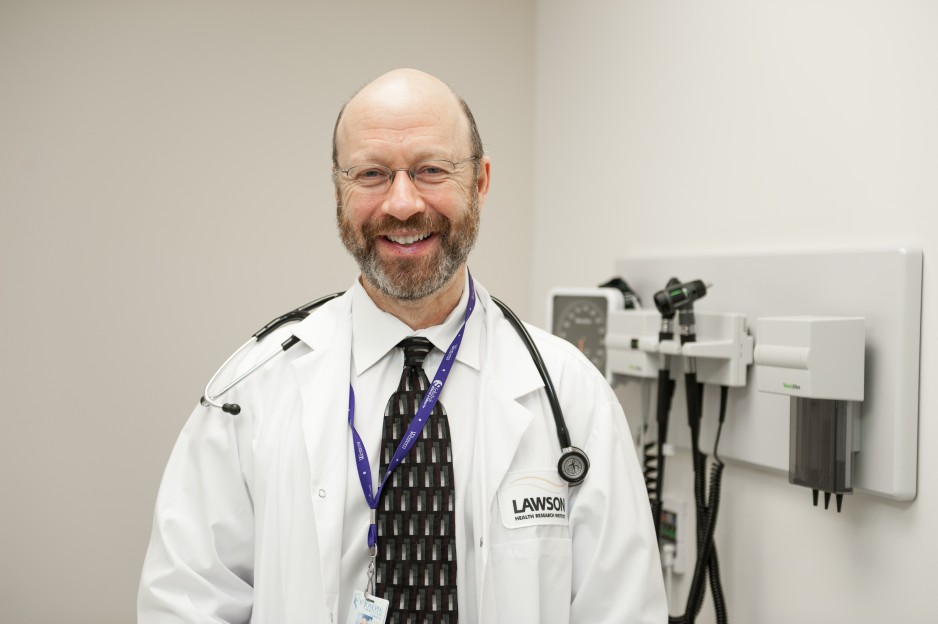A father’s legacy, a son’s calling
Compassion Matters Here
From childhood, Dr. Michael Silverman had been primed for the role he would eventually take on after medical school – one he saw as a vital blend of social justice and medicine.
Today, Dr. Silverman is Medical Director of St. Joseph’s Infectious Diseases Care Program, citywide Chair/Chief of Infectious Diseases, and a scientist at Lawson Research Institute who is breaking new ground in care and research for those living with HIV and other challenging conditions.
